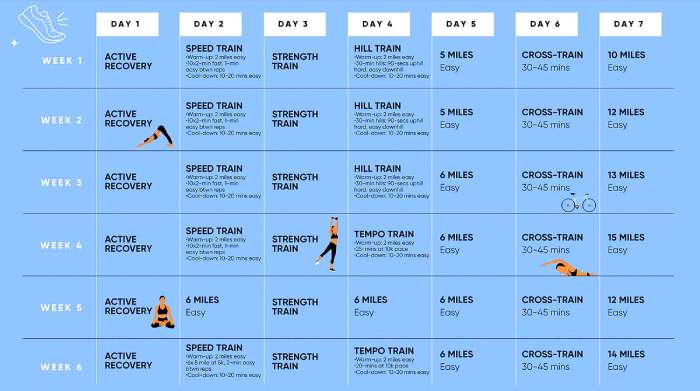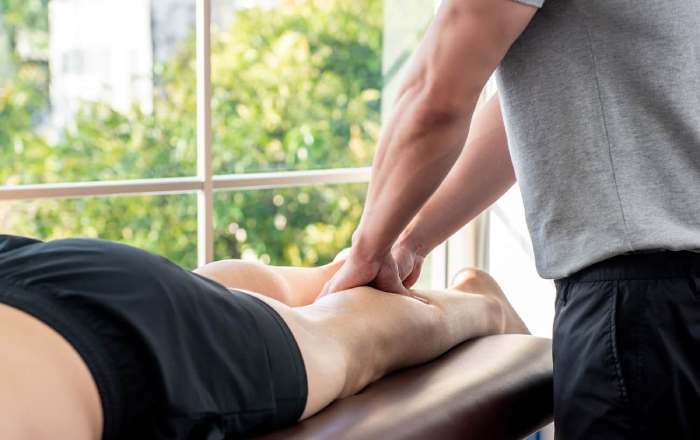Working up to a marathon is like a roller coaster ride–full of highs, lows, and unexpected curves. And when you finally cross that finish line, you’ve burned more calories than you thought possible. So, how many Calories Burned Running a Marathon?
This article’ll explore training and preparation, calorie consumption, factors affecting calories burned, estimating calorie burn, and post-marathon recovery.
Let’s get started!
Contents
- 1 Training & Preparation: Physical Demands Leading Up to a Marathon
- 1.1 Calorie Consumption: Fueling Your Body for Long-Distance Running
- 1.2 Factors Affecting Calories Burned: Understanding Variables in Marathon Running
- 1.3 Estimating Calorie Burn: Calculating Energy Expenditure during a Marathon
- 1.4 Post-Marathon Recovery: Nourishing and Restoring the Body after the Race
- 1.5 Frequently Asked Questions:
- 1.6 Conclusion:
Training & Preparation: Physical Demands Leading Up to a Marathon

How often do you need to train to prepare for a marathon?
Depending on your current fitness levels, a marathon training plan should include four to five days of running or walking each week, with at least one rest.
Stretching tips and nutrition planning are essential components of any training program. To complete a marathon, you must build up your endurance and strength so your body can handle the long-distance challenge.
Focus on gradually increasing your running distance and duration over time, and don’t forget to allow your body ample time for rest and recovery. Proper training and preparation will help you reach your marathon goals while avoiding injury.
Calorie Consumption: Fueling Your Body for Long-Distance Running
You’ll burn an average of 3,500 calories when running a marathon. Healthy eating habits and adequate hydration are key to ensuring your body has enough energy to survive the race.
Eating a balanced diet full of complex carbohydrates, lean proteins, and healthy fats will help you maintain the energy you need to keep going.
On race day, eating a meal high in carbohydrates and low in fat and fiber several hours before the race is important. Hydrating adequately before, during, and after the race is also essential.
| Food Group | Before Race | During Race |
|---|---|---|
| Carbohydrates | High | Moderate |
| Protein | Moderate | Low |
| Fat | Low | Low |
| Fiber | Low | Low |
Factors Affecting Calories Burned: Understanding Variables in Marathon Running
Several factors can influence how many calories you burn while running a marathon. Stretching exercises are important for warming up your muscles and increasing your flexibility, which can help you conserve energy and improve your running technique.
The terrain you’re running on can also affect the amount of calories burned; for instance, running on a soft trail requires more energy than running on a flat paved road.
Your body weight is also a major factor, with heavier runners burning more calories over the same distance than lighter runners.
Estimating Calorie Burn: Calculating Energy Expenditure during a Marathon
Using your body weight and running speed as a guide, you can estimate the amount of calories you’ll burn while running a marathon. To get the most accurate estimate, consider alternative exercises, such as cycling and swimming, to gain an optimal fitness level.
Additionally, employ hydration strategies before, during, and after the marathon to maximize calorie burn.
Here are some tips to help you estimate your calorie burn when running a marathon:
- Calculate your body weight and speed, then use a calorie calculator to estimate the calorie burn.
- Monitor your heart rate and body temperature to adjust for any changes in speed and terrain.
- Adjust your calorie burn according to the difficulty of the marathon course.
Post-Marathon Recovery: Nourishing and Restoring the Body after the Race

Once you’ve finished the marathon and burned those calories, giving your body time to recover is important.
After the race, it’s important to replenish and rehydrate your body with water and electrolytes. Make sure you drink plenty of fluids to avoid dehydration.
Additionally, getting enough rest and sleep is important to allow your body to recover fully. You can also prioritize healthy meals with protein, carbohydrates, and healthy fats to help restore your energy levels.
Finally, taking a few days off from running and strenuous activity is a good idea to allow your body to rest and repair itself. Following these hydration tips and rest strategies will help ensure a successful post-marathon recovery.
Frequently Asked Questions:
When running a marathon, choosing the right shoes for proper nutrition and pacing strategy is important. Get well-cushioned, comfortable shoes that fit your feet snugly. Look for shoes with good arch support and shock absorption to help you stay on track.
You can prepare for a marathon with more than just running! Try strength training and interval runs to increase your endurance. For example, a case study found that a runner improved their marathon time by incorporating strength training into their routine. So give it a try!
It would be best if you drank plenty of water during your marathon. Additionally, consider hydration strategies that include electrolytes to help maintain your electrolyte balance. This can help you stay well-hydrated and perform at your best.
You and a running partner? Perfect! Interval training and nutrition plans become easier with a buddy. Together, you’ll reach your goals and have fun doing it.
To prevent muscle soreness after a marathon, focus on proper nutrition and pre-race stretching. Eating well before and after the race supports your muscles and helps them to recover. Additionally, stretching can improve your flexibility and reduce soreness.
Conclusion:
Running a marathon is daunting, but it’s a great way to challenge yourself and get in shape. It takes serious training and proper preparation, and you’ll burn lots of calories in the process. Of course, how many you burn depends on your body type, the terrain, and other factors.
But no matter how many calories you burn, you’ll also need to focus on recovery to ensure you don’t overdo it and stay injury-free. So, take time to relax and enjoy the feeling of accomplishment that comes with completing a marathon.

Hello, I’m Ravindra. Over the years, I’ve immersed myself deeply into the world of fitness and health, transforming both my body and mind. Writing has allowed me to share my journey, insights, and expertise with those just starting out and seasoned fitness enthusiasts alike. Beyond just routines and diets, I believe in inspiring others to adopt a holistic approach to well-being.
